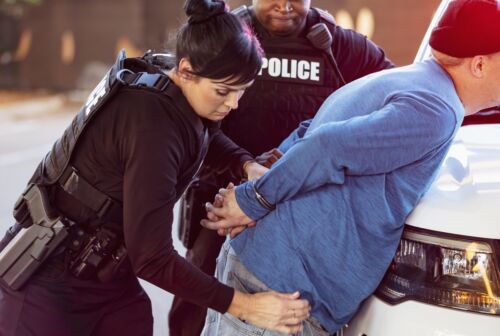



When you are in police custody, you are completely dependent on the police for every basic need: your food, your ability to communicate with your loved ones, and your medical care. And regardless of what you may have done to end up in police custody, you do still have rights, and the right to medical care is among them.
Of course, not all police officers safeguard the rights of those in their custody, and some actively harm the people in their charge. If you have been arrested or detained by police, and they refuse you medical treatment, what recourse do you have? Can you sue police for medical negligence? The answer is yes, but these cases are not exactly the same as medical malpractice cases. If you have been denied proper medical treatment while in police custody, here’s what you need to know.
Police have a duty of care to people in their custody, which includes ensuring their reasonable safety and health and providing necessary medical attention. Unfortunately, this duty is often breached; mortality in jails is on the rise, and some studies estimate that nearly one in five of those deaths are due to medical neglect or delayed care.
That’s not including injuries that don’t result in death, and cases that aren’t reported due to fear of retaliation or internal handling by police instead of transparent reporting. Common scenarios include:
Sometimes these and other forms of medical neglect are intentional or reckless; sometimes, they are simply negligent. Either way, denial of medical treatment by police should not go unaddressed. You may be able to file claims against the police officer and agency in federal or state court.
Negligence and “deliberate indifference” are two different types of claims someone denied medical care while in police custody might file. Let’s take a look at what each involves.
For a successful deliberate indifference claim, a person must show:
Deliberate indifference is a claim with its basis in federal law (the Eighth Amendment, or the Fourteenth Amendment for pretrial detainees). These claims are usually brought in federal court, but the misconduct involved in a deliberate indifference claim can also be addressed in civil courts at the state level, but may be called something else.
Deliberate indifference can be very difficult to prove, because it’s necessary to show that the police had actual knowledge of the risk to the detainee. Sometimes this proof is available through bodycam or surveillance footage, or from witness statements. Negligence is an easier claim to prove, relatively speaking, because it doesn’t require showing that the officer knew of the risk to a detainee, only that he or she should have known. Even so, these claims require careful investigation, and it can be challenging to gather evidence.
Negligence claims have their basis in state law. A successful negligence claim must prove the following elements:
In other words, while you can’t file a claim for medical malpractice against police, you do have legal recourse if you’ve experienced delay or denial of medical treatment while in police custody.
Cases involving medical negligence and police can be complicated. An experienced injury attorney knows the legal landscape, can advise you regarding your options, and help gather the evidence necessary to support your claim. To learn more about medical negligence and police, or to get guidance regarding your situation, contact the Fraser Law Firm to schedule a consultation.